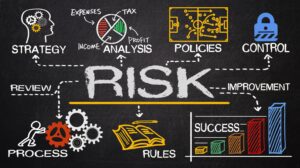Business Financial and Accounting Skills
Course Fee:
Business Financial and Accounting Skills
This course addresses key issues, such as cost analysis, continuous improvement of cost assignment, budgeting, management control, and performance evaluation. In so doing, the program pushes delegates to understand the cause-and-effect relationship among business strategy and vision, operational objectives, measures and targets, as well as advanced performance measurement and reporting.
Participants will:
• Understand the finance and accounting jargon
• Learn costing and budgeting terminology used in business
• Determine full costs of outputs for the goods and services provided
• Master traditional techniques and recent best practices
• Link finance and operation for budgeting purposes and strategy execution
• Learn how to build a comprehensive performance measurement system
CONTENT
Management and Financial Accounting: Key Concepts and Terminology
• Identify the major differences and similarities between financial and managerial accounting
• Understand the role of management accountants in an organization
• Linking strategy to planning and costing
• The key role of budgeting and cost control in contemporary organizations
• Towards a cross-functional process-view of the organization
• Understand your processes: integrating financial and non-financial aspects
• Understanding the Financial Statements
Cost analysis
• What is costing?
• Cost concepts and terminology
• Different costs for different purposes
• Fixed Vs Variable costs: the Cost-Volume-Profit analysis model
• Contribution Margin analysis
• Manufacturing vs. non-manufacturing costs
• Period Vs. Product costs: inventory evaluation and control
Traditional vs. Advanced Techniques in Cost-control
• Under-costing and over-costing: the consequences for profitability
• How to refine a costing system?
• Indirect Vs. Direct costs
• Traditional Cost Allocations systems Vs. Activity-Based Costing
• Cost hierarchy & Cost drivers
• Linking resources, activities and management
• Introducing Activity-Based Budgeting and Management
Budgeting: Flexible Budgets and Variance Analysis
• The role of budgeting
• Define the master budget and explain its major benefits to an organization
• Describe the difference between a static budget and a flexible budget
• Compute flexible-budget variances and sales-volume variances
• Discuss the behavioral implication of budgeting
• The budgeting process in your organization: how to improve it?
• Which tools shall we use to complement budgeting and costing?
Measuring Corporate Performance
• Broadening performance measurement systems
• The key role of customer satisfaction and business process reengineering
• Beyond budgeting: integrating financial and non-financial issues
• Introducing the Balanced Scorecard
• The key perspectives
• Introducing the Strategy maps
Methodology
The training methodology integrates lectures, interactive discussions, collaborative group exercises, and illustrative examples. Participants will acquire a blend of theoretical insights and hands-on practical experience, emphasizing the application of learned techniques. This approach ensures that attendees return to their professional environments equipped with both the competence and self-assurance to effectively implement the acquired skills in their responsibilities.
DATE:
1ST BATCH: 6th – 9th May, 2025
2ND BATCH: 18th – 21th Nov, 2025
Course Category
- Human Resource and Admin
- Finance and Accounting
- Internal Audit and Fraud Control
- Stores, Procurement and Supply Chain
- Information Technology
- Aviation and Maritime
- Banking, Investment and Insurance
- Business Communication
- Construction Management & Civil Engineering
- Engineering, Instrumentation and Maintenance
- Entrepreneurship and Business
- Hotel & Hospitality Management
- Law and Contract Management
- Management and Leadership
- Project Management
- Public Relations
- Public Sector
- Sales, Marketing & Customer Service
- Secretaries & Personal Assistants
- Transport & Logistics
- Security and Safety
More Courses
VENUE
25, Queen street, Alagomeji Bus Stop, Yaba, Lagos










